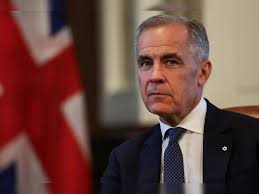‘Trade talks resume with US after Canada rescinds tech tax,’ says Canadian PM Carney

Ottawa, June 30, 2025 – Canadian Prime Minister Mark Carney announced Sunday that Canada will withdraw its planned digital services tax (DST). The decision comes just before the tax was scheduled to take effect on July 1. As a result, trade talks with the United States have officially resumed.
Carney said the move aims to ease growing tensions with Washington. He emphasized that the goal is to protect Canadian jobs, businesses, and long-standing trade partnerships.
Carney and Trump Speak, Break Ice
Carney spoke directly with U.S. President Donald Trump on Sunday morning. He described the call as “tense but productive.” The two leaders agreed to restart trade discussions immediately. Their goal is to reach a final agreement by July 21, 2025, in line with a commitment made during the G7 summit earlier this month.
“We are acting in good faith,” Carney said at a press briefing. “The digital tax is off the table, and we expect fair, balanced trade talks in return.”
The announcement marks a significant shift in tone from just days ago, when tensions had sharply escalated.
Trump Had Frozen Talks, Threatened Tariffs
On June 27, President Trump ended trade talks with Canada. He threatened to impose tariffs on Canadian aluminum, auto parts, and steel. Trump accused Canada of unfairly targeting American tech companies with the 3% digital tax.
“Canada’s tax was a direct attack on American innovation,” Trump said at a Michigan campaign rally. “We won’t let countries take advantage of us.”
Canadian officials feared the conflict could spark a trade war. With over $1.3 trillion in annual bilateral trade at risk, both sides faced mounting pressure to reach a solution.
Business Community Backs the Decision
Canada’s business sector welcomed the tax reversal. The Canadian Chamber of Commerce and tech industry leaders praised the government’s efforts to reduce tension and prevent retaliation.
“This was a wise decision,” said Goldy Hyder, president of the Business Council of Canada. “We support fair taxation, but not at the cost of a trade crisis with our largest partner.”
Canadian tech firms also voiced relief. Many rely on partnerships or platforms operated by U.S. giants like Amazon, Google, and Meta.
Opposition Slams “Surrender”
Not everyone approved. Opposition leaders accused the government of surrendering to U.S. pressure.
Jagmeet Singh, leader of the New Democratic Party, said the reversal showed weakness.
“This government gave in too quickly,” Singh argued. “American corporations will continue to profit from Canadians without paying their fair share.”
Green Party leader Elizabeth May added that the move undermines Canadian sovereignty. She urged the government to revisit tax reform through an international agreement instead.
Why Was the Tax Introduced?
Canada proposed the digital services tax in 2021. It aimed to ensure that large global tech companies paid taxes based on revenue generated from Canadian users. The DST would have applied to firms with global revenues over €750 million and Canadian revenues above $20 million.
The tax was delayed to give time for a global framework. However, after years of slow progress, the Canadian government decided to move forward. That decision has now been reversed.
Finance Minister Chrystia Freeland confirmed that the tax will not be collected or applied retroactively. She added that Canada will return to global discussions through the OECD to pursue a multilateral solution.
Path Cleared for New Trade Framework
With the tax out of the way, Canada and the U.S. are preparing for an ambitious new trade agenda. Officials from both sides are expected to meet in Washington this week. Discussions may expand beyond the USMCA to include areas like digital trade, cybersecurity, energy cooperation, and military coordination.
“We now have a chance to modernize North American economic ties,” said Sarah Goldfeder, a former U.S. diplomat. “This could become the biggest bilateral reset since the NAFTA renegotiation.”
Still, several issues remain. Disagreements over dairy imports, softwood lumber, and electric vehicle rules could slow talks. Political factors, including Trump’s re-election campaign and Canada’s upcoming fiscal update, may also shape the pace of negotiations.
What Happens Next?
Prime Minister Carney said Canada will draft legislation to officially repeal the DST in the coming weeks. Until then, no tax will be collected.
The next major milestone is a potential Carney-Trump summit in Ottawa on July 19, two days before the trade agreement deadline.
The clock is ticking. Both governments want to strike a deal quickly. Trump hopes to showcase progress at the Republican National Convention in August. Carney seeks to stabilize markets before his government’s fall fiscal announcements.
A Lesson in Global Digital Taxation
The DST episode highlights the challenges countries face in taxing global tech firms. While public support for digital taxes is strong, national attempts often trigger backlash, especially from powerful trade partners like the U.S.
“Digital taxation remains a global challenge,” said economist Armine Yalnizyan. “Unilateral actions carry risk, but coordinated efforts take time. Countries need to balance fairness with diplomacy.”
For now, Canada’s tech tax is gone. But the conversation about fair taxation in the digital era isn’t over. If anything, it has only just begun.






